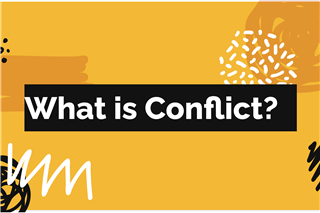During the workshop, students were introduced to the different types of conflict, conflict resolution, healthy communication and support in conflict.
Social-Emotional learning has always been a mission of the school, but since the COVID-19 pandemic, there has been a more visible need to help support students in this area. This need is supported by the IB Approaches To Learning Skills framework, which specifically addresses many of the effective skills that are so important for young people to develop.
Last year, teachers at the Pemberton Woods campus met to discuss social-emotional skills, and identify strengths and opportunities for future development in our community. Even though teachers address many of the affective skills within their classes, it can be difficult to provide an adequate amount of dedicated time to really “zoom in” on these skills.
Thus, myself, school counsellors Mr. Colin Montgomery and Ms. Kathryn Als, with the assistance of Ms. Rebecca Nielson, Coordinator: Student Life & Leadership, have been working towards finding opportunities where we can release students from their courses to allow dedicated time to hone these skills.
The Respectful Communication workshop that we ran had a very broad title for a one-hour workshop, as it asked students to engage in a series of discussions and activities to work on developing skills in active listening, consensus building and encouraging others to contribute to discussions—all skills that students will find value in—in learning and in life.
For example, one activity that revolved around active listening saw students divided into two groups. One group was tasked to try and convince the students in the second group that a specific TV show was the best, while the second group was told to give 55% of their attention while the other students were speaking. They then reversed the roles, but with the second group giving 100% of their attention. When discussing how they felt, students shared how neither giving all of their attention or none of their attention was the preferred way of listening.
More workshops will be developed throughout the year so that other grades can take part and learn these meaningful skills.





